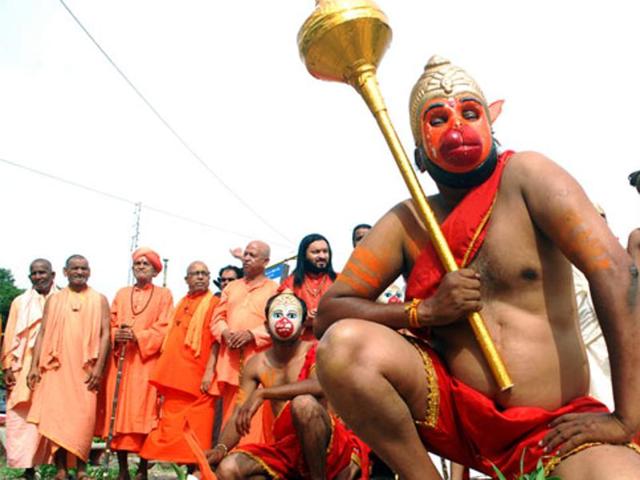Hindutva is a way of life with some outposts
That religion and politics must be kept apart is a maxim that all parties had followed until externalities such as “people’s sentiments” and “correcting the wrongs of history” entered the picture to break the fragile arrangement between the law and faith
By disapproving of the practice of asking for votes in the name of religion and calling it “not permissible”, the Supreme Court has rightly adhered to what the Constitution and the relevant legislation have said on the matter. The issue before the court was its 1995 judgment that “Hindutva is a way of life”. The judges said the petition before them did not require a definition of the term Hindutva.

Looking at the petition and the judicial pronouncement, two things, which are related, come into view: one, religion and politics must have separate domains, and two, Hindutva, which, being a way of life, will not lend itself to easy definition, and the judges are right here. A definition presupposes codification, an authority by whom or which it is done, a paraphernalia of institutions by which the code and its appurtenances are held to the ground, etc. None of these things is discernible in Hinduism, something that was a matter of regret to writers such as Bankim Chandra Chatterjee.
Read: 2 years of BJP rule in Haryana: RSS agenda overshadowed govt initiatives
That religion and politics must be kept apart is a maxim that all parties had followed until externalities such as “people’s sentiments” and “correcting the wrongs of history” entered the picture to break the fragile arrangement between law and faith. It is often a two-way street, meaning that an interpretation that religion and politics mixed anywhere is bound to have a rub-off effect that would far outweigh the challenge it was originally faced with. Love jihad, cow protection, the demand for promoting Sanskrit, banning actors from Pakistan, etc. are all acts that have their roots in a certain reaction to unchecked wrongs, which were “wrong” because they hurt the sentiments of large groups of people. And since no law can condone any injury to people’s sentiments, there will be space for the growth of intractable tendencies that shall, funnily, take refuge in the law itself. The State here is then caught in a bind. It can then intervene, through its executive wing, the Election Commission, and its own role as a giver of wisdom.
Read: Can spiritual leaders be tried under election law, asks SC
The theory of Hindutva being a way of life has a lot of intellectual support. In fact, Hinduism as a religion had existed for at least 2,500 years before the term ‘Hinduism’ was coined. It had survived through its numerous gods and numerous sects and religious texts. This has been held as a strength, not weakness, of Hinduism. And before the growth of Indian nationalism, no Hindu ruler in India needed to have a state ideology that was religious. Its need was felt by some in the late 19th and 20th centuries, when the idea of India, a huge subcontinent, was sought to be conceived of in political terms. They thought such a project was not executable without the assistance of religion. It is here that Hindutva as a way of life became walled in with distinct outposts as its frontiers. And the periphery of the law does not often extend up to the situational advantage of the outposts. This is a constant tension that refuses to end in any courtroom.





